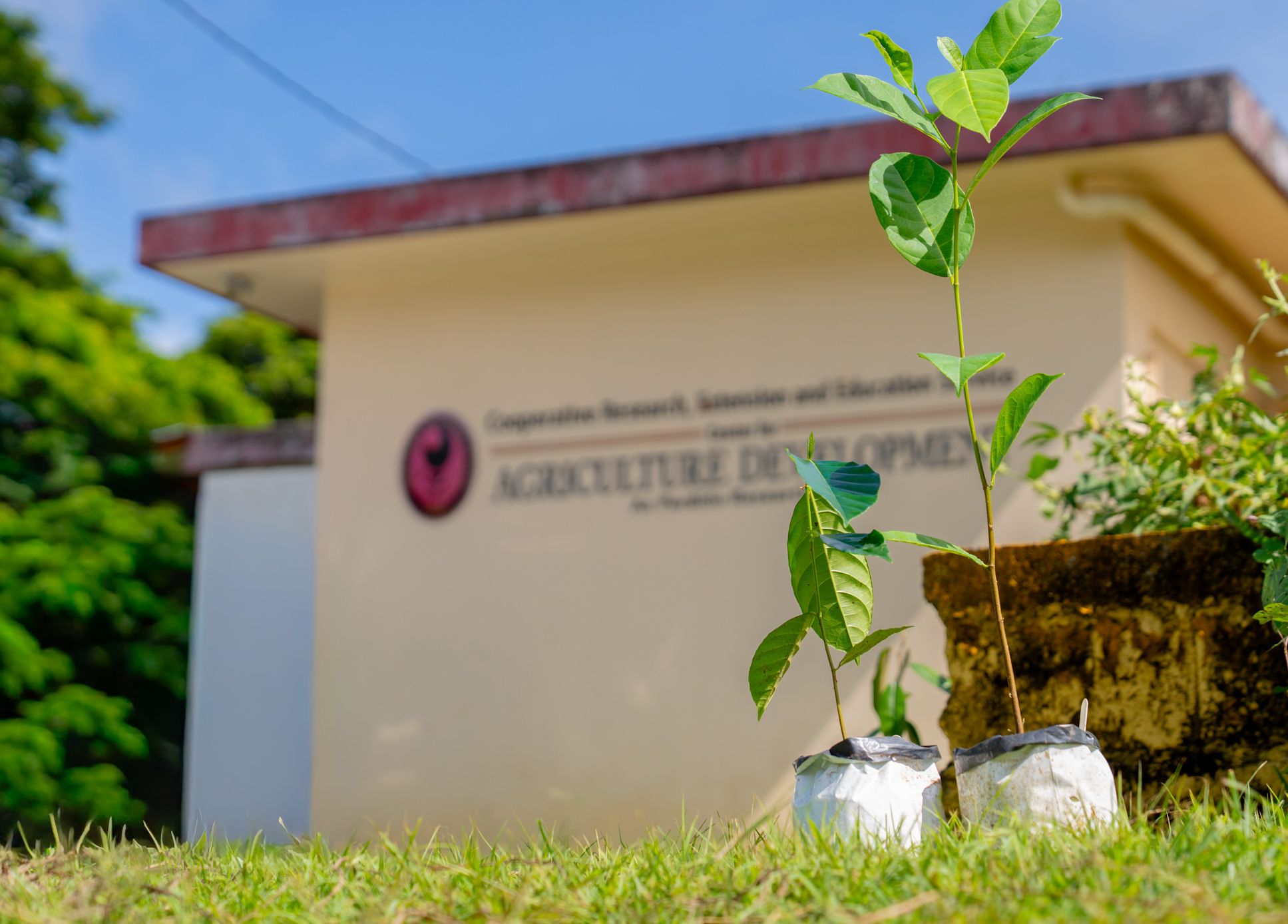There is a type of grass, however, you would want to grow in abundance.
Vetiver, popularly known as the “wonder grass,” not only helps farmers protect their crops but also keeps the natural environment in good shape.
According to Isidoro T. Cabrera, chairman of the Saipan and Northern Islands Soil and Water Conservation District, most farms in the CNMI are located on slopes. Many farmers are having a hard time maintaining their farm plots due to erosion caused by heavy rains.
The problem does not stop there.
The runoffs, instead of replenishing ground water tables, sweep valuable nutrients into the ocean and create sediments that adversely affect the coral ecosystems.
To address these problems, Northern Marianas College- Cooperative Research, Extension and Education Service came up with the contour farming system on an experimental farm in As Perdido.
NMC-CREES believes vetiver, or Wetiveria zizanoides, can reduce erosion.
This fast growing grass has helped prevent erosion in several Southeast Asian countries.
Also known as couscous grass, vetiver originates from India but can grow nearly everywhere in tropical or subtropical climates.
It can survive on soils with high salinity levels and is very easy to plant and maintain.
Since it can tolerate high salinity levels, vetiver can also grow in sand, which can help prevent erosion along coastal areas or beaches.
Vetiver is a nitrogen fixing plant and adds nutrients to the soil. Its cuttings can be used as animal feed or for handicrafts.
The vetiver species that NMC-CREES promotes does not produce viable seeds, so it cannot become a pest.
Planting a vetiver is very easy. Just break away root pieces of a live plant and put them into the soil.
The main attraction of the wonder grass is its root system, which, according to NMC-CREES outreach coordinator, Claus G. Bier, can grow 12 feet in the ground.
So instead of competing with other plants for water, it helps pump up water and nutrients from lower soil levels, thus helping improve soil moisture and the health of other crops.
Vetiver can also hold soil together to strengthen sloped areas.
(To be continued)








